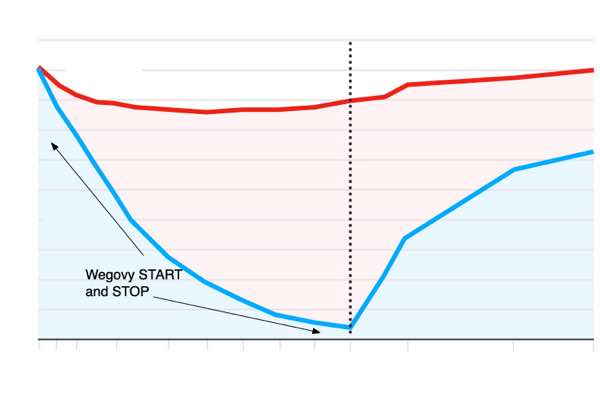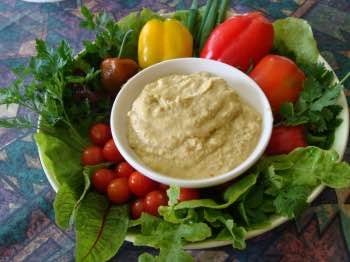Why medication for weight loss doesn't work
This page explains why medication for weight loss doesn't work but a change of lifestyle can have a dramatic effect on energy levels and success in restoring health.
Researchers have found that two-thirds of obese people without diabetes will stop taking medication for weight loss within one year. The reasons are clear and we need to face them before making a start considering the high failure rate.
But if we are honest we must also face the fact that many find they are equally unable to make the lifestyle changes that will lead to permanent weight loss.
Quick guide
- Why medication for weight loss doesn't work
- Permanent weight loss
- The obese have to make one of three choices
- Two major steps for permanent weight loss
- Medical insurance dilemmas concerning weight loss
- Let thy food be thy medicine
- Another viewpoint
- Blindness and weight loss
- Hair loss
- Why are older Americans quitting weight-loss drugs?
Permanent weight loss
Both parties in the lifestyle versus medication debate are adamant that for permanent weight loss you have to continue with the programme for ever; or don't start in the first place.
To lose weight and regain it is far worse than simply knowing that you are obese and accepting that it's going to stay that way.
"There is little support for the notion that diets lead to lasting weight-loss or health benefits.
We concluded most would have been better off not going on them at all."
- Prof Traci Mann, U of Minn, Health and Eating lab[1]
So before starting with the new GLP-1 medication or making lifestyle changes, take a firm decision that this is for ever; or not at all.
Are you willing to take Wegovy injections, Tirzepatide or Ozempic for ever? Can you afford it for the rest of your life?
 What happens if you stop the medication
What happens if you stop the medicationFor years Mary strategized with her practitioner about losing weight. “We tried exercise,” like walking 35 minutes a day, she recalled. “And 39,000 different diets[5].”
Why medication for weight loss doesn't work
Equally are you willing to make the lifestyle changes recommended below for the rest of your life? I won't pretend they will be easy but the surge in energy levels, the decrease in pain in your body and a dramatic drop in the meds you are taking all mean that this new way is worth a thought.
"Our findings highlight that despite large increases in GLP-1 RA initiation, many patients stop these medications within a year[1]."
- Truveta study
So why do 75% of overweight people stop taking GLP-1 medication?
The first is simply that they are unaffordable for the majority unless you have insurance that will pay for these meds; this is the most common reason for those not suffering from diabetes. Without question they are extremely expensive so taking them for the rest of your life becomes prohibitive even if they are working; which they probably will. They are effective.
It comes as no surprise that those with higher incomes were less likely to quit; they can afford the medication.
The second is that the side-effects are often horrific. Even 47% of those with type 2 diabetes quit within one year[1] despite the benefits. They are the most common reason for discontinuation for those suffering from T2D.
The researchers found not surprisingly that side effects were strongly associated with discontinuing the medication.
The most common side effects of these GLP-1 receptor agonist medications are nausea, vomiting and diarrhoea; and for some constipation ironically. These symptoms may be moderate but for a significant percentage they are severe.
The third most common reason for overweight people to stop taking GLP-1 medication was that it simply wasn't working. For those who lost only 5 or 10 pounds there was a relatively higher likelihood of discontinuation.
How do the GLP-1 Receptor Agonists work?
There are receptors in the gut on which the so-called Incretin hormones act. They slow the release of food from the stomach, stimulate the pancreas to start producing insulin and send messages to the brain that you have had enough to eat.
They also reduce the secretion of the hormone glucagon that normally raises blood sugar when there is a demand for energy from the cells.
For example diabetics with a Continuous Glucose Monitor will notice that their blood sugar rises when they exercise.
An "agonist" is a drug that binds to these receptors reproducing the same action that those hormones naturally induce in the body.
One of the problems associated with agonist medications is that your body then starts producing less of your own hormones naturally.
The obese have to make one of three choices
So the obese are compelled to make one of three choices. Many are ostrich-like pretending that the consequences of being overweight only happen to other people. They are constantly trying this or that new diet; and become increasingly depressed when they fail.
"The word dieting brings to mind deprivation, being miserable and uncomfortable; and ultimately knowing deep down that all your weight-loss efforts will fail."
- Samantha Heller, nutritionist.
Option 1: just accept you are overweight
Option 1 is simply to accept that you are overweight, you are unable or unwilling to change and accept the consequences. You refuse to constantly be dieting and perhaps you are ready to take medication to manage the diseases associated with being obese.
It is an honest appraisal of yourself.
Option 2: Take medication for weight loss for ever
You are ready and willing to take medication for weight loss for the rest of your life; despite the side effects and cost. It is also an honest response.
You understand up front that if you stop the drugs the pounds will return and you will actually be worse off than if you never started.
One of the reasons is that when dieting 20% of the weight loss is muscle; but when you regain those pounds it is not restored. You end up being weaker.
Option 3: Lifestyle changes for the rest of your days

You are tired of being in pain, anxious about the chronic degenerative diseases associated with being overweight and concerned about all the medication you are having to take; and you are willing to give lifestyle changes are real go. You accept that they are permanent; for the rest of your days.
This is a complex journey and probably somewhat different for each one of us who are overweight. For me personally I lost 11kg permanently; this is how I went about it.
Two major steps for permanent weight loss
Why medication for weight loss doesn't work for the majority. Are we idle, misinformed or just do not care about our health?
 Woman taking a brisk walk in the garden after a starchy breakfast.
Woman taking a brisk walk in the garden after a starchy breakfast.There were two major steps in my journey with obesity to be made. The first was to take a short brisk walk after every starchy meal. That meant not going straight from breakfast to the motorcar, from lunch to the computer and after dinner spending 10 minutes marching outside the house around the garden; you could do it on a stationary bicycle or in the swimming pool.
That was relatively easy. It
took some determination for three weeks to inculcate my brain with the
new lifestyle but then the habit grew easier. Two years later I'm still doing it most evenings.
The second part was more difficult. One after another I gave up refined carbs for the rest of my life. I started with pasta, cookies and cakes which was relatively easy because they gave me discomfort and often pain in the belly.
Reducing sugar intake to six or less teaspoons of sugar as recommended by the Heart Association was a good deal more difficult; ice-cream and chocolate in particular. It was made easier by turning to natural unprocessed honey which has a low GI for sweetening; especially in cocoa.
Most difficult of all proved to be giving up commercial bread, scones and rolls for ever; yet it turned out to be a great blessing in disguise. It meant purchasing a mill and baking our own loaves.
The plus side once over the initial cost was that our bread was far cheaper and more flavourful. I began to appreciate what others had been saying to me; grocery store slices taste like cardboard unless smothered with jellies, peanut butter or processed meat.
The great blessing was that the extra fiber contributed significantly to a lifelong problem; severe chronic constipation.
 The dough for 100% wholegrain bread can be prepared in just five minutes.
The dough for 100% wholegrain bread can be prepared in just five minutes.Medical insurance dilemmas concerning weight loss
Medical insurance companies have huge dilemmas that they have to weigh. Why should they pay for the huge cost of GLP-1 receptor agonists to be taken lifelong when the same end with a better outcome can be achieved for zero expense by straightforward but admittedly difficult lifestyle changes?
Currently many are refusing to cough up; with the wholehearted support of the majority of their members. Of course pharmaceutical companies will be putting huge pressure on them to pay considering the enormous benefits from weight loss by one means or another.
Let thy food be thy medicine
What would the Father of Medicine contribute to the dilemma why medication for weight loss doesn't work if he was here today?
"Let thy food be thy medicine; and medicine be thy food."
Hippocrates (460 - 370 BC)
Another viewpoint
 Whole grains are strongly associated with less insulin resistance
Whole grains are strongly associated with less insulin resistanceAnother viewpoint is that this is really a spiritual issue; it is facing up to the sacredness of the human body and the responsibility we all have to care for ourselves. If that means strictly limiting food from the Devil's Pantry then that is what we should be doing; period.
That is perhaps the reason why medication for weight loss doesn't work for Believers; they need to be addressing the real underlying issues.
Blindness and weight loss
We who suffer from insulin resistance know it only too well; obesity is associated with several eye diseases. But researchers have found that those prescribed GLP-1 receptor agonists like semaglutide for diabetes or weight loss had more than a 7 times greater risk of suffering from ischemic optic neuropathy[3].
There are no short cuts like medicines for weight loss; the potential side effects are horrific. Pulling the sweet tooth, strictly avoiding refined carbs and more exercise together are safe and effective; there is no other option for those determined not to lose a limb, go blind or suffer a cardiovascular catastrophe.
Hair loss
Researchers have now found that GLP-1 Receptor Agonist medications are associated with a very high risk of hair loss; at one year between 40 and 76 percent for different types[4].
Patients concerned about how they look are finding this very debilitating obviously.
The material expressed on this page is gleaned from the nutritional and environmental literature; it is clearly referenced. A plain distinction is made between the author's opinion and that which is scientifically proven. When in doubt consult your health professional.
To suggest a correction or clarification, write to Dr Bernard Preston here. Contact.
Why are older Americans quitting weight-loss drugs?
Pharmaceutical companies are disturbed that older Americans are quitting their weight-loss drugs "in droves[5]." One study reported in JAMA Cardiology found that 60% discontinued semaglutide with a year. These are some of the reasons given.
- Weight loss drugs are extremely expensive; they simply can't afford $1000 and more each month for the rest of their lives.
- Nasty side effects are experienced by 20% of patients; nausea, sometimes vomiting and diarrhoea, for example.
- Several trials have reported that it is not only adipose tissue that is lost; around 40% is muscle and bone.
“During the aging process, we begin to lose roughly 0.7% muscle weight per year; for people on these medications, the process is much more accelerated leading to frailty, fractures and falls.”
- Endocrinoligist Dr Z Liu, University of Virginia[5]
Why medication for weight loss doesn't work
Why medication for weight loss doesn't work long term. Two-thirds of obese people quit the programme within a year because of the toxic side effects and enormous cost of the drugs.
Whatever you choose, do something; otherwise great misery lies ahead.
- Discontinuation and reinitiation of GLP-1 RA medications @ JAMA Network Open
- Whole grain consumption for the Prevention and Treatment of Breast Cancer
- Risk of Nonarteritic Anterior Ischemic Optic Neuropathy in Patients Prescribed Semaglutide
- Medscape Medical News Conference EADV 2025
- Older Americans Quit Weight-Loss Drugs in Droves
When browsing use right click and "Open Link in New Tab" or you may get a bad gateway signal.
Newsletter
Our newsletter is entitled "create a cyan zone" at your home, preserving both yourself and Mother Earth for future generations; and the family too, of course. We promise not to spam you with daily emails promoting various products. You may get an occasional nudge to buy one of my books.
Here are the back issues.
- Lifestyle and ideal body weight
- What are ultra-processed foods?
- Investing in long-term health
- Diseases from plastic exposure
- Intensive lifestyle management for obesity has limited value
- A world largely devoid of Parkinson's Disease
- The impact of friendly bacteria in the tum on the prevention of cancer
- There's a hole in the bucket
- Everyone is talking about weight loss drugs
- Pull the sweet tooth
- If you suffer from heartburn plant a susu
- Refined maize meal and stunting
- Should agriculture and industry get priority for water and electricity?
- Nature is calling
- Mill your own flour
- Bake your own sourdough bread
- Microplastics from our water
- Alternative types of water storage
- Wear your clothes out
- Comfort foods
- Create a bee-friendly environment
- Go to bed slightly hungry
- Keep bees
- Blue zone folk are religious
- Reduce plastic waste
- Family is important
- What can go in compost?
- Grow broad beans for longevity
- Harvest and store sunshine
- Blue zone exercise
- Harvest and store your rainwater
- Create a cyan zone at your home
Did you find this page interesting? How about forwarding it to a friendly book or food junkie? Better still, a social media tick would help.
Address:
56 Groenekloof Rd,
Hilton, KZN
South Africa
Website:
https://www.bernard-preston.com